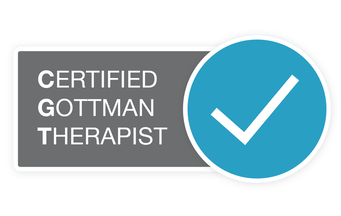Living with an ex is common these days.
There are many reasons that couples make the decision to stay living together even when the relationship has ended. Most of the reasons my clients give revolve around finances and children. However, during this COVID-19 crisis, living together with your ex may cause additional stress and frustration making your reasons to stay in the first place seem insignificant!
As you can imagine, it is expensive to conduct two different households. The costs of coming up with a deposit, paying a second rent or mortgage, and furnishing a new household can feel impossible since most households already require two incomes to live.
The alternative likely involves moving in with a roommate, which may feel like a step backward in life, creating frustration and anxiety.
Those exes who are co-parenting may have to consider moving to another less expensive part of the area than they currently live and work in. Keeping children in the same school district or requires heavy commutes to get them back and forth.
The stress involved in having to survive a living situation with someone who represents pain, feelings of abandonment, and potentially even betrayal light up the “fight-or-flight” responses in our brain and nervous system.
These biological instincts and impulses are designed to give us a heads up that something dangerous is happening and we should protect ourselves or flee the situation.
When we purposely stay in a situation that our soul feels is damaging, it can cause emotional consequences.
In order to survive, we often need to ignore or compartmentalize these difficult emotions so we can get through our day. While this feels like a good option, denying something does not mean it goes away. It certainly doesn’t ward off the physical impact of chronic stress.
Many couples state they “get used” to the stress of the situation without ever really accepting it is happening. This long-term depletion of our body’s emotional resources causes issues with the stress hormone cortisol. Living with an ex creates copious stress, which can have serious health ramifications.
Regardless of your reasons for deciding to stay, you certainly didn’t account for the possibility of being faced with a pandemic virus (COVID-19) that would prompt shelter-in-place requirements preventing you from social escape. How could you? Nothing like this has ever happened in your lifetime, and you had no way to anticipate it.
Therapy for exes who continue to live together can help, especially now that you are likely getting on each other’s nerves!
This is even more important if you have children together. Learning how to co-parent while living with an ex means understanding how to be a good role model for your child’s health in the future.
If you have never been to therapy, you may not have learned the tools for how to best ask for your positive needs as you live together. You may also need to look at how you had communicated your needs. Conversely, you may need help learning how to establish healthy boundaries.
Individual therapy may also be appropriate if a major betrayal has occurred. This can help you figure out how to let resentment go, or how to best find some forgiveness. Forgiving your partner does not mean you think what they did was ok. It means you want to stop carrying this pain around in your heart and the distress caused by re-living the pain and frustration. Forgiveness helps you be ok with your life moving forward.
Setting house rules and having weekly check-ins about the state of your union will do immense good for your household.
Although you are not currently out in the dating world due to shelter-in-place requirements, at some point you will want to start to date again. This could possibly be while still living with an ex. You should be having discussions with your ex about whether or not to bring new partners to the shared home.
If children are involved, there should also be rules about how you will share responsibilities. How will you continue to manage your worries and fears about the breakup otherwise?
It may be confusing for a child to see their parents sleeping in different rooms and to see and feel the obvious tension in the house. Finding the best ways to soothe your children and alleviate their concerns is an important reason for regular check-ins.
How you will handle holidays, previously scheduled vacations, and division of expenses all need to be discussed. Some of these conversations may touch on how you want to talk to others about your relationship. You should respect the fact that these friends and family members may still be in contact with your ex. Honor their hopes and expectations about how you speak to others about your decisions to end the relationship.
Agreements should also be made about time that you can have the house to yourselves. Granted, right now that’s not much of a choice – you can’t go hang out at a friend’s place while your ex has the house for the evening. There is generally a lot of tension regarding alone time in the house. Making agreements about times you can give each other to exist for a while without the other person present can begin to be something each partner looks forward to. Even under the current shelter-in-place requirement, you can still find ways to honor your ex’s space.
Have conversations about each other’s expectations and goals for bringing the living situation to an end.
I don’t encourage clients to continue living in this environment long term. That’s not to say that some couples can’t make it work, but many are enduring more than thriving in a situation like this.
Conversations about when a lease is ending and how you want to handle either having one person removed or both moving out clearly need to be had. Other conversations about mutually acquired pets, furniture, and big financial purchases like vehicles can cause intense emotions. I tell my clients to give themselves permission to take a break if these conversations make them feel overwhelmed.
Many couples think they must argue it out to the end so they can “just get it done”. You are not doing yourselves any favors by staying in these intense emotional conversations without taking breaks. Your brain is highjacked when you are emotionally overwhelmed. You won’t make good decisions or may make decisions that you might even come to regret.
The Relationship Place is offering free remote consultations to ease individuals and relationship stress throughout the COVID-19 shelter-in-place. What better time to work with this complicated situation than while stuck at home? Schedule with us today!







